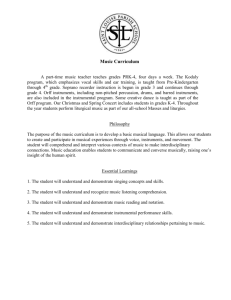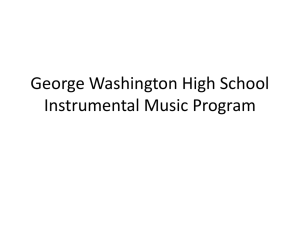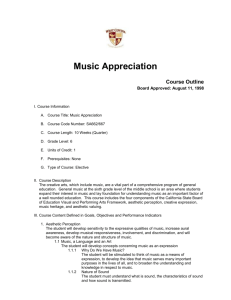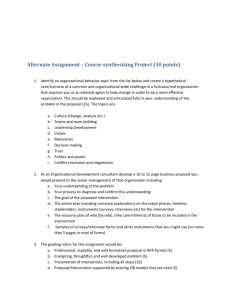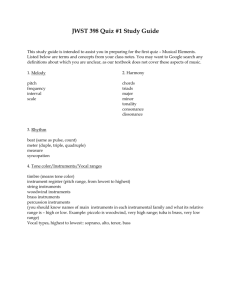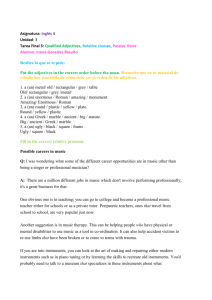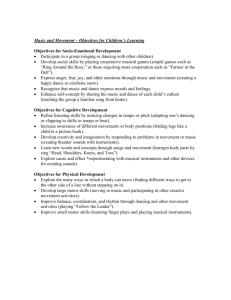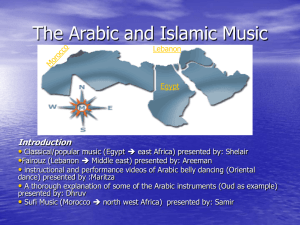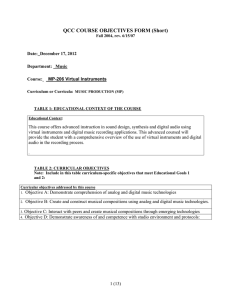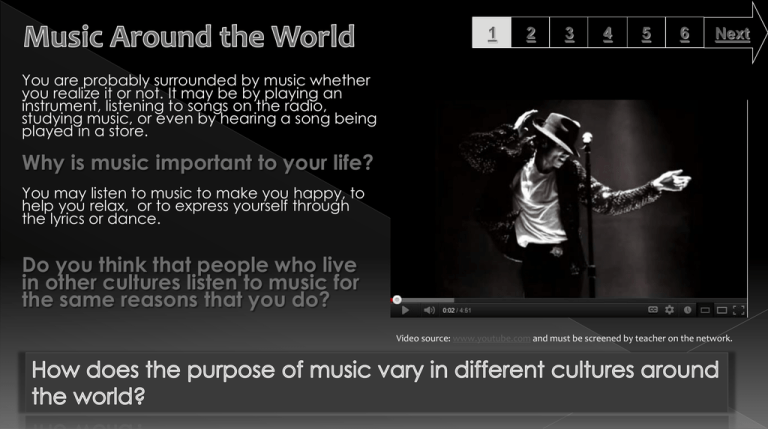
1
2
3
4
5
6
Next
You are probably surrounded by music whether
you realize it or not. It may be by playing an
instrument, listening to songs on the radio,
studying music, or even by hearing a song being
played in a store.
Why is music important to your life?
You may listen to music to make you happy, to
help you relax, or to express yourself through
the lyrics or dance.
Do you think that people who live
in other cultures listen to music for
the same reasons that you do?
Video source: www.youtube.com and must be screened by teacher on the network.
1
2
3
4
Begin by exploring The Street to find out
about the music from the following
countries:
India, Ireland, Brazil, Turkey, and Nigeria.
Each house describes a particular
culture’s instruments, famous musicians,
and provides examples of music.
Pick any two (2) countries based on your
interests.
On the following page you will be able to
record and organize your new knowledge
in order to present to classmates.
Image Sources: www.bbc.com
5
6
Next
1
2
3
4
You will use this organizer to
gather information that will
help you learn about World
Music.
Keep your notes short, sweet,
and to the point so you can
easily complete the sharing
activity.
Image Source: Clipart.com
5
6
Next
1
2
3
4
At the direction of your teacher,
share your learning about the
different purposes of music
around the world using one of
the following collaborative tools:
VoiceThread
Edmodo
Padlet
Class Wiki
Alternative non-digital
assessment (MS Word doc)
Image Source:voicethread.com
5
6
Next
1
2
3
4
5
6
Next
Click on the links below to learn more about the unique
musical instruments used in each country.
Ireland
India
Brazil
Turkey
Nigeria
Instruments
Instruments
Instruments
Instruments
Instruments
1
BCPS Curriculum
World Music 7-1Evaluate the application of the elements and characteristics of musical
sounds as they are used in a variety of genres and styles representative of world
cultures.
Maryland State Curriculum
Standard 1.0 Perceiving and Responding: Aesthetic Education: Students will
demonstrate the ability to perceive, perform, and respond to music.
1. Evaluate application of the elements of music and characteristics of musical sounds
as they are used in a variety of genres and styles representative of world cultures
Common Core State Standards
Reading: 1. Read closely to determine what the text says explicitly and to make logical
inferences from it; cite specific textual evidence when writing or speaking to support
conclusions drawn from the text.
Writing: 7. Conduct short as well as more sustained research projects based on focused
questions, demonstrating understanding of the subject under investigation.
Standards for the 21st Century Learner
1.1.6 Read, view, and listen for information presented in any format (e.g. textual,
visual, media, digital) in order to make inferences and gather meaning.
2.1.3 Use strategies to draw conclusions from information and apply knowledge to
curricular areas, real-world situations, and further investigations.
Maryland Technology Literacy Standards for Students
3.0: Use a variety of technologies for learning and collaboration.
2
3
4
5
6
Time Frame: 1 45minute class period
Differentiation:
Direct students to use comprehension tools
included in databases, such as: audio readaloud, labeled reading levels, and embedded
dictionaries.
Learning Styles: Visual, Global, Field Independent,
Reflective
Notes to the teacher:
1.
Students will need an account to use of the web
2.0 tools of your choice. The teacher or library
media specialist can create a class Voicethread,
Edmodo space, or pbworkswiki for the student
assessment,
2.
At least one computer with internet access is
required for this Slamdunk.
3.
Students can work together if necessary.
Last updated: July 2015 Created by Amie Schwartz
BCPS Slam Dunk Research Model, Copyright 2012, Baltimore County Public Schools, MD, all rights reserved. The models may be used for educational, non-profit school use only.
All other uses, transmissions, and duplications are prohibited unless permission is granted expressly. This lesson is based on Jamie McKenzie’s Slam Dunk Lesson module.


